
Hi everyone,
The Cosmic Storms Mechanical Expansion is going to make planetfall on September 10th. That’s not that far away, so today we’ll be going over the Storm mechanics and their aftermath effects.
Passing it over to Gruntsatwork to take over from here.
Hello everyone, without much preamble, lets dive right into the new storm mechanics.
- Storms will randomly start to spawn a few years after gamestart.
- Each Storm triggers a cooldown until the next natural storm can spawn (adjustable in Game Settings)
- There is a limit to how many storms can spawn naturally in the early, mid and late-game (adjustable in Game Settings)
- Those limits only apply to randomly spawned storms. Storms created by players, by event or mechanic, will always spawn regardless of any other settings
- Upon being spawned, they will have a target system towards which they will move, dissipating upon reaching that goal or timing out
While the storms through the galaxy, they will have an effect on all systems within their influence.
All Storms share 2 general effects:
- Reduced chance for Emergency FTL jumps
- +0.2 monthly devastation
In Addition, each of the 8 Storms has their own unique effects, here are the first 6:
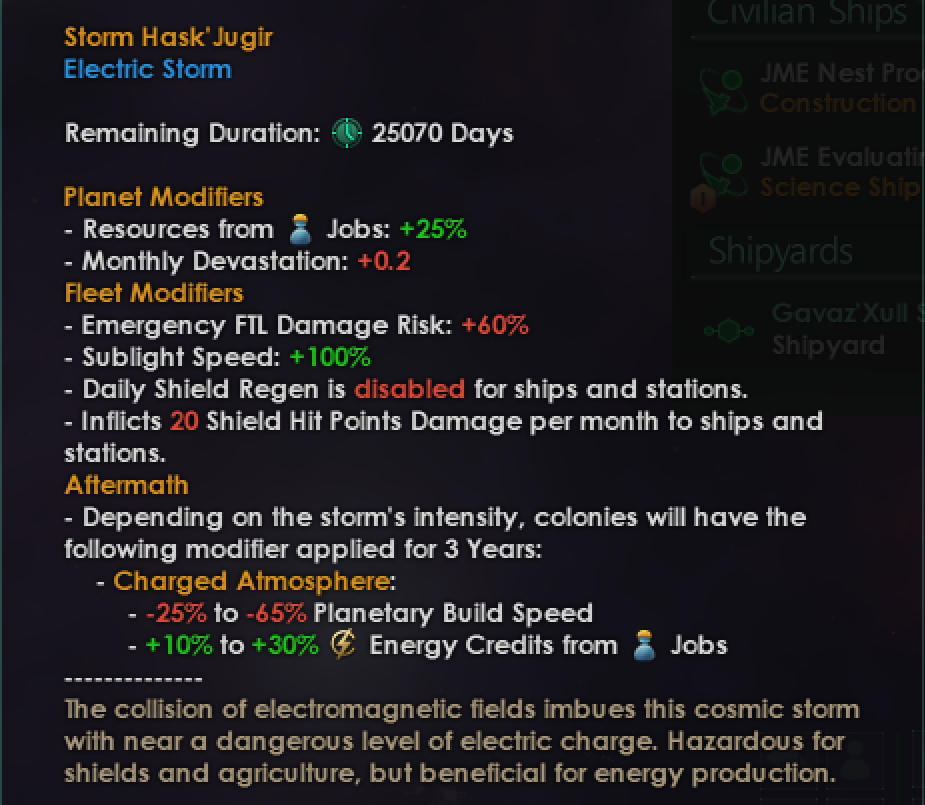
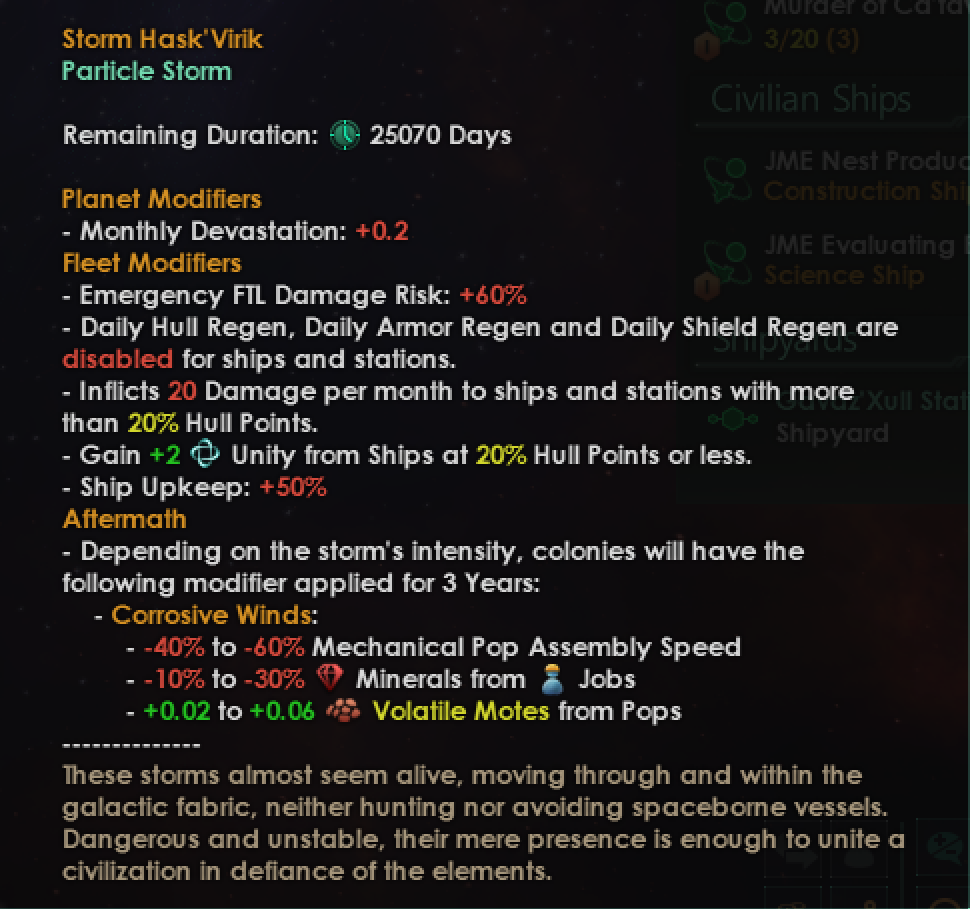
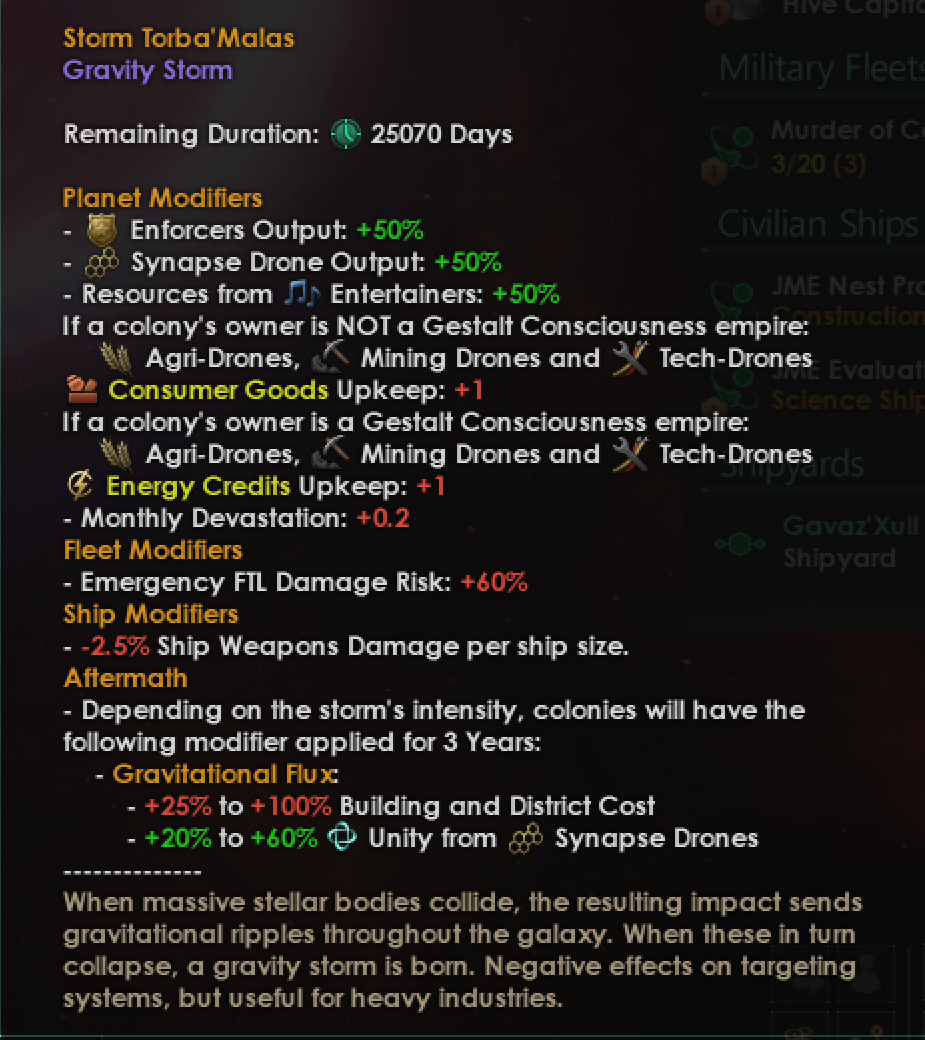
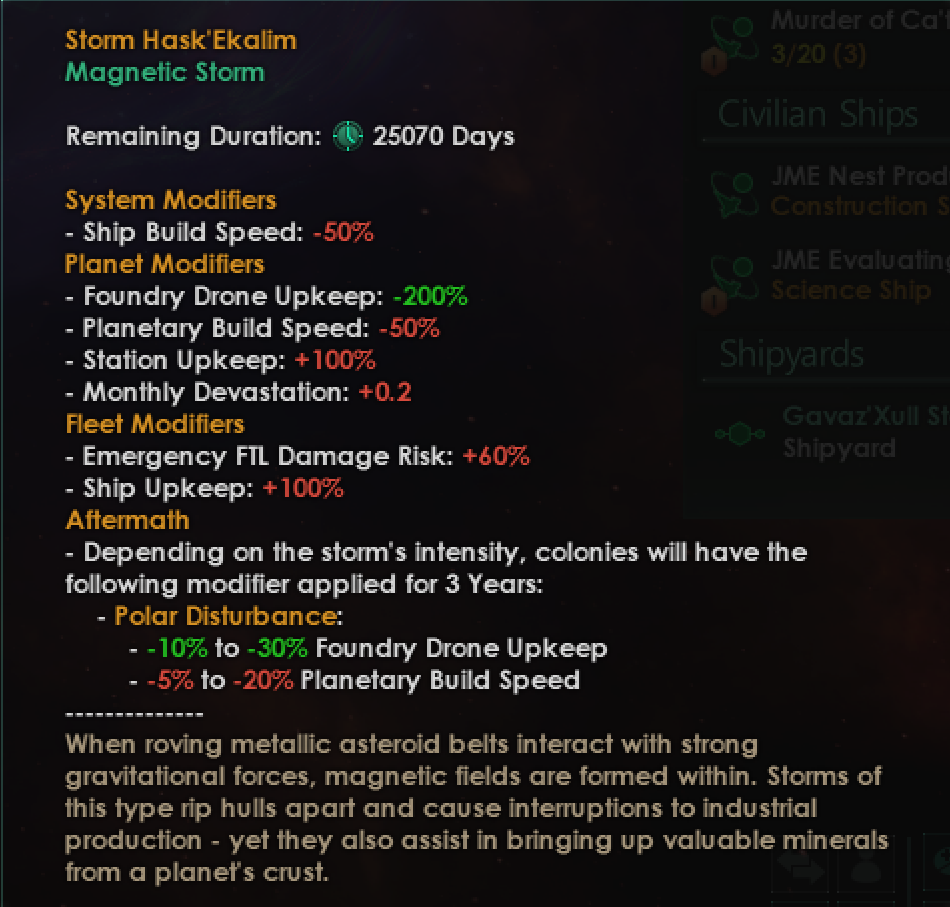
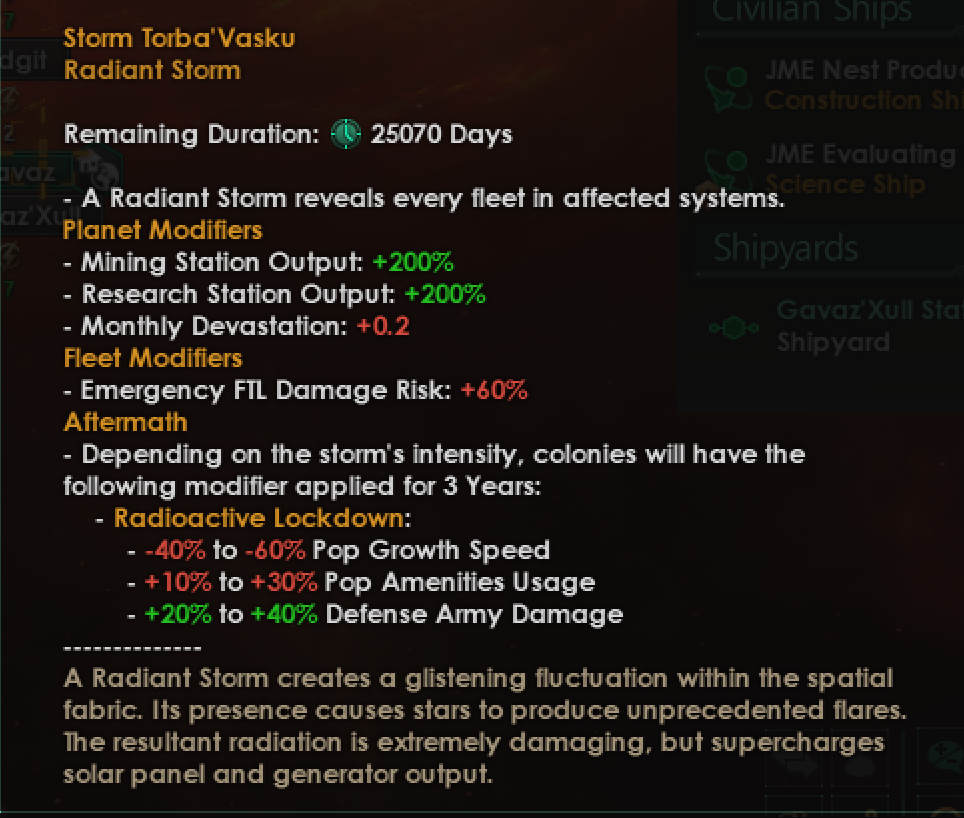
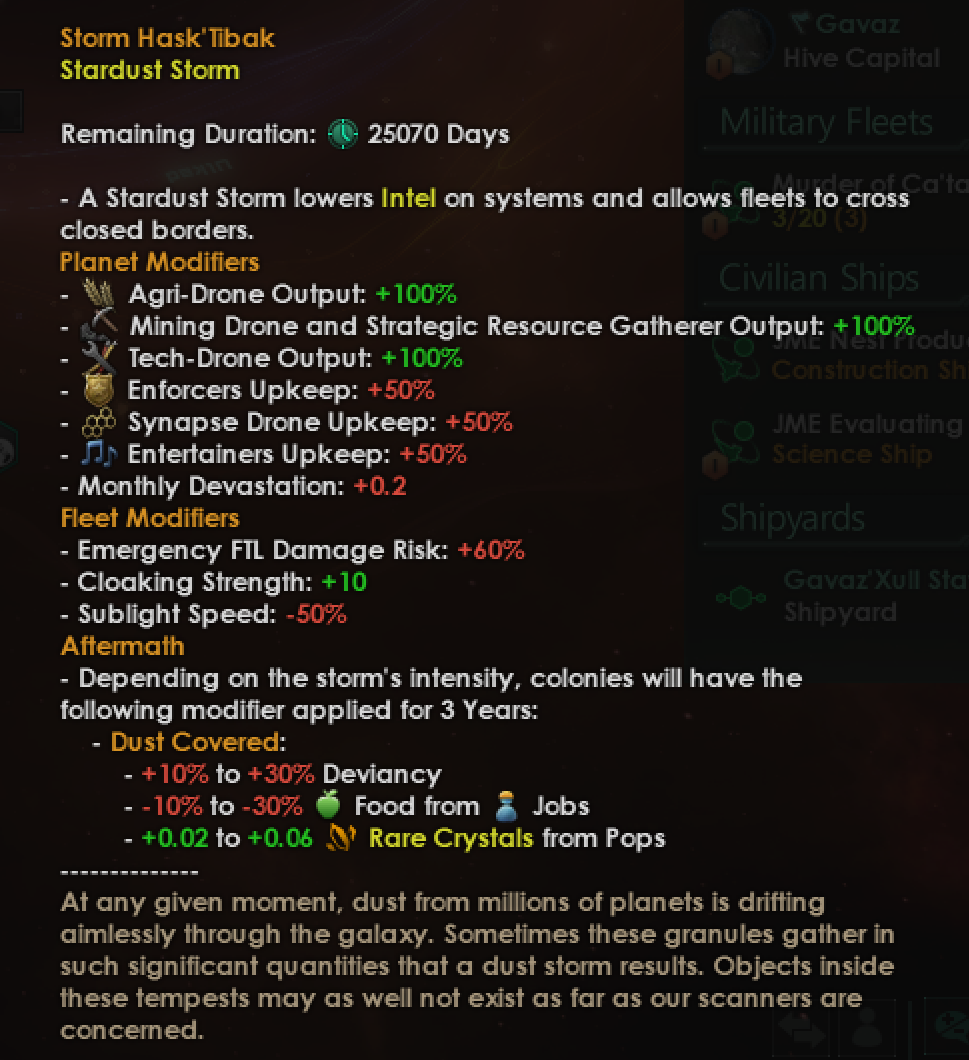
While the first 6 storms are rather orthodox in their effects, the Shroud and Nexus storms are a bit special.
Shroud storms have a chance to change the systems within their influence immediately upon coming into contact, this can range from colonies, habitable and inhabitable planets, up to stars.
Nexus storms are special. They are rarer than any other storm and for a good reason, they are bad news. A Nexus storm is an opportunity… for everyone else. They wreak havoc across all worlds in their influence with a far greater intensity than the other, lesser, storms.
After a storm leaves a system, its ongoing effects are removed. However, given their cataclysmic impact, there are a few aftermaths to deal with.
Each Storm leaves behind their own unique Aftermath modifier, lasting for 3 years. Those aftermaths have an intensity between 1-3, with 3 being the strongest modifiers. (The effects themselves are the same, only intensity increases.)




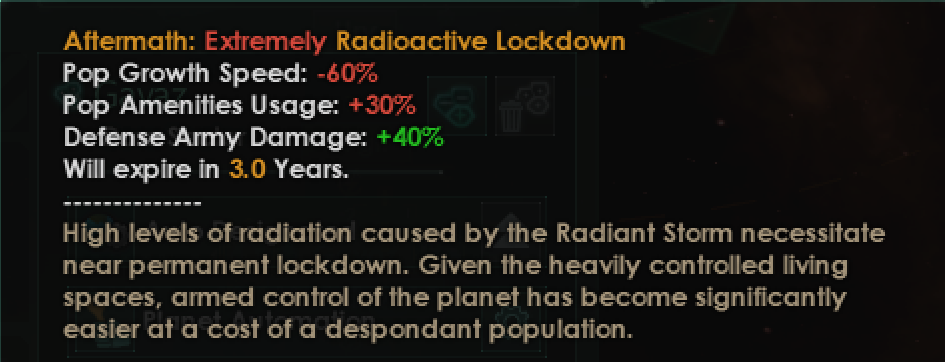

In addition, when a storm leaves a system, there is also a chance it will leave behind new unique Planetary Features, Planetary Modifiers and Anomalies.
Some New Planetary Features:



Example of a New Modifier:

Examples of some New Anomalies:
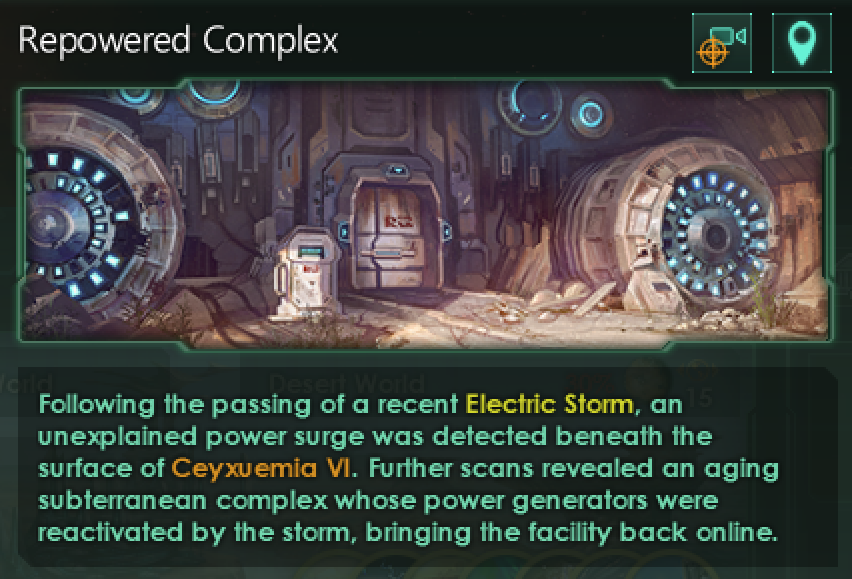
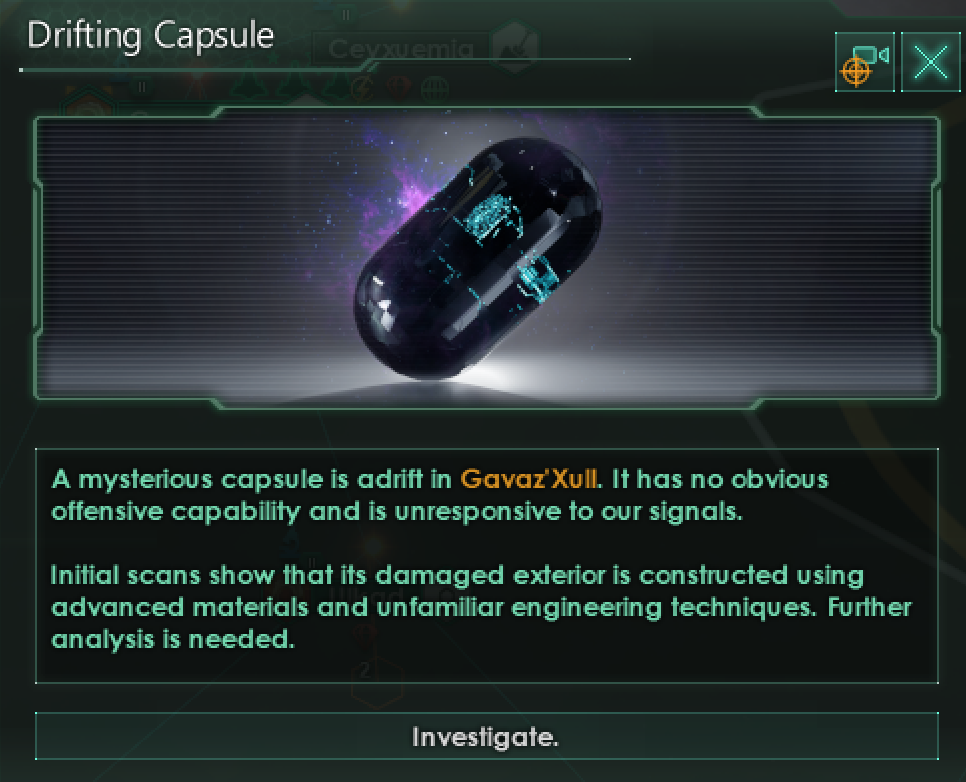
Some of those storms can get quite nasty and devastation is always worrisome, so how do you stop the storms from ravaging your planets?
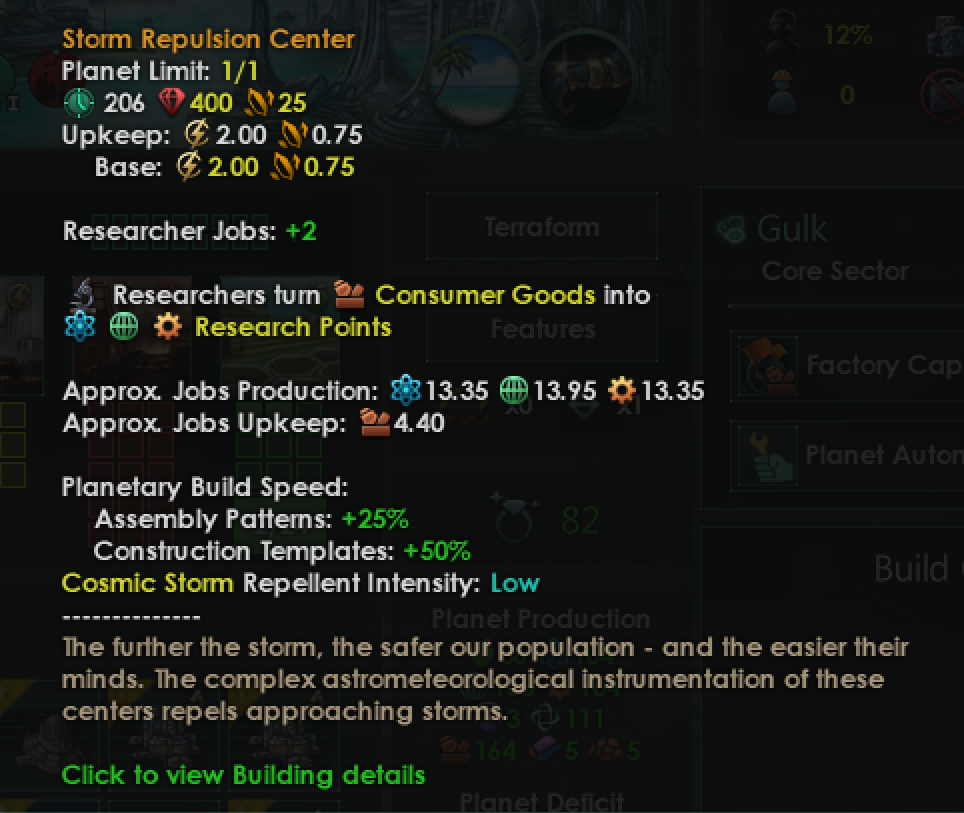
We have introduced several new buildings and technologies to protect yourself or maybe squeeze a bit more use out of a storm.
Storm Attraction and Storm Repulsion are the two ways in which you can manipulate the paths in which storms move. Storm Attraction buildings and their repelling counterparts can be build on planets and starbases. Each has 1 upgrade level and grants you researcher jobs.
In Addition you can build the Storm Relief Center, to reduce some of the effects of the storms, while also buffing your base resource output while a storm is affecting your planet. Should you be able to convince the Galactic Community to pass a few storm related resolutions, those bonuses will become even more powerful.
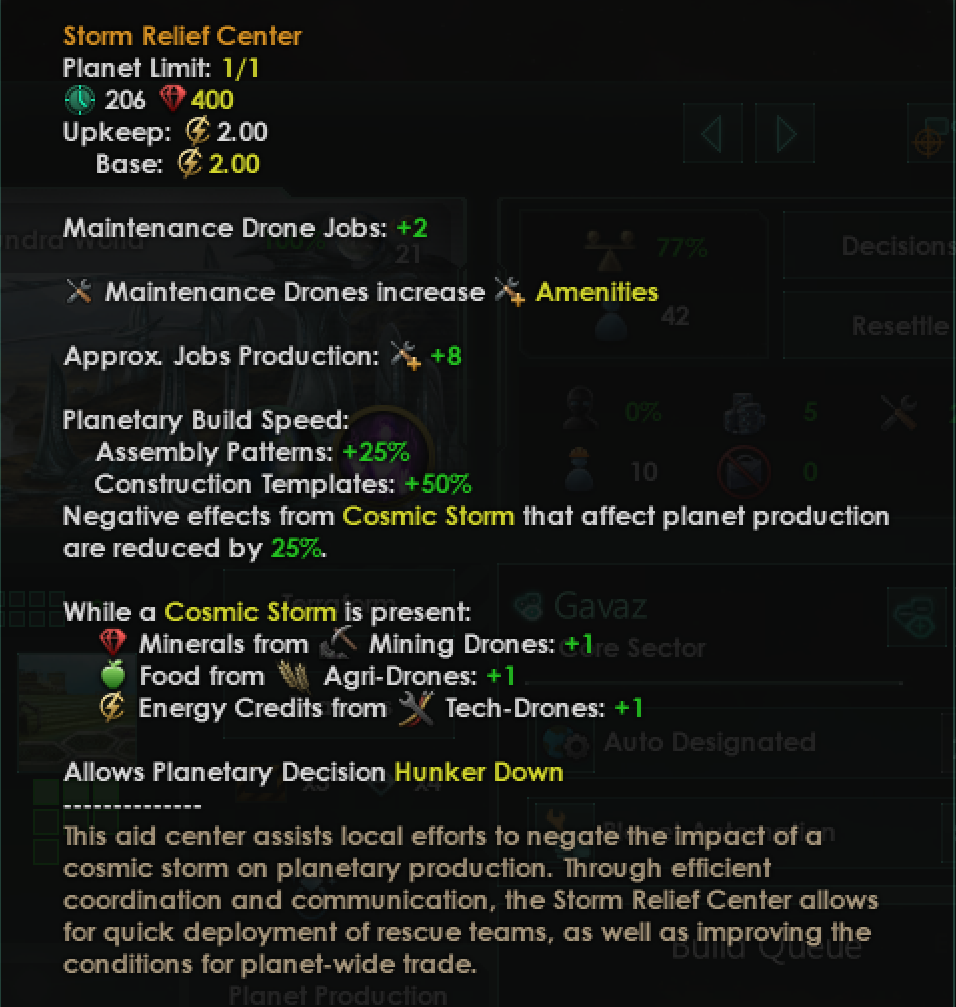
With the Storm Relief Center you also have the option of “Hunkering Down”, a new planetary decision to reduce your devastation gain and reduce some of the storm’s impact.
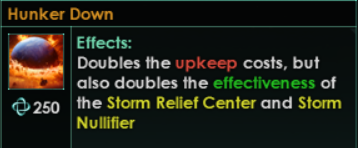
As you encounter cosmic storms, you will also get access to new technologies meant to reduce some of their negative effects on your economy and ships.

As your last line of defense, you can use your Planetary Shield Generators to reduce the devastation you gain from storms by -50%
All in all, a prepared player will have many options of avoiding the worst of the storms effects, while benefiting from the opportunities they offer, using them to tip the scales between themselves and their enemies.
Once you have researched the necessary technologies, you will be able to use the new Weather mapmode to get a good overview of both Storm Attraction/Repulsion as well as the paths already existing storms will take.
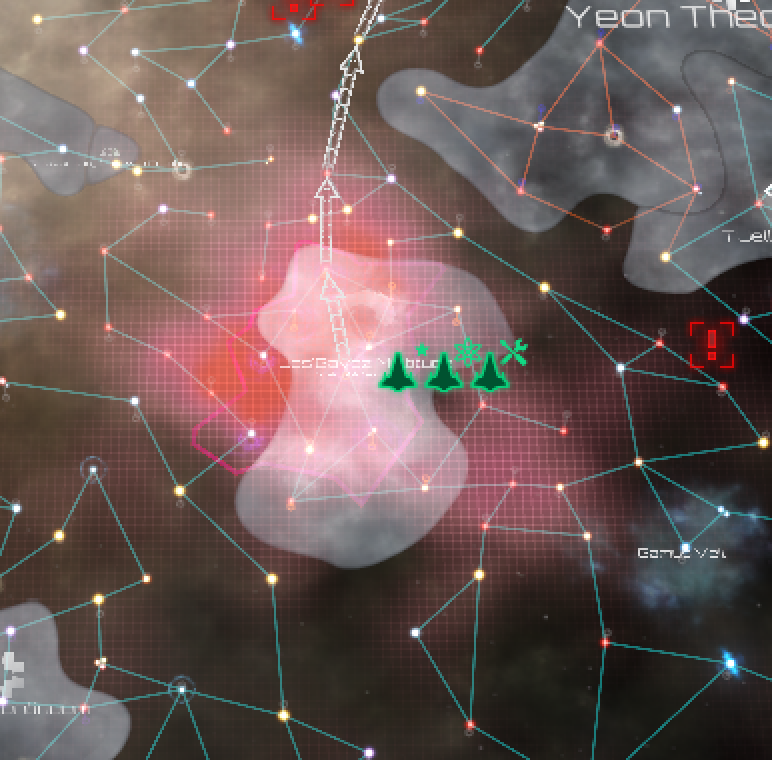
I’m sure knowing where a storm that grants cloaking to all ships within will move is something none of you will abuse.
Next week we’ll be going over the Storm Chaser Origin, the new Civics, and the new Precursors.
See you then!
Pre-purchase Stellaris: Cosmic Storms alone or with a discount as part of Stellaris: Season 08!

